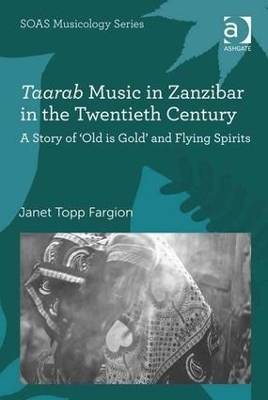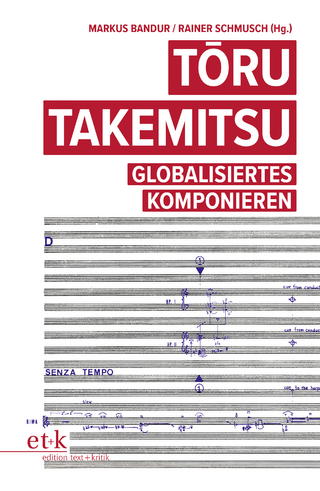
Taarab Music in Zanzibar in the Twentieth Century
A Story of ‘Old is Gold’ and Flying Spirits
Seiten
2014
Routledge (Verlag)
978-0-7546-5554-1 (ISBN)
Routledge (Verlag)
978-0-7546-5554-1 (ISBN)
The musical genre of taarab is played for entertainment at weddings and other festive occasions all along the Swahili Coast in East Africa. In this study Janet Topp Fargion traces the development of the genre in Zanzibar, from the late nineteenth century to the end of the twentieth.
The musical genre of taarab is played for entertainment at weddings and other festive occasions all along the Swahili Coast in East Africa. Taarab contains all the features of a typical 'Indian Ocean' music, combining influences from Egypt, the Arabian Peninsula, India and the West with local musical practices. In Taarab, Music in Zanzibar, Janet Topp Fargion traces the development of the genre in Zanzibar, from the late nineteenth century to the end of the twentieth. Of special interest is the role of women. Although men play the main role in the composition and performance of the genre, Topp Fargion argues that the modernization of the genre owes a debt to the participation of women - as audiences and primary consumers, but also as poets and innovators of musical concepts. The book weaves together the historical, social, economic, religious and political dynamics involved in the development of the genre, and investigates how these are played out in the performance of taarab music on Zanzibar.
The musical genre of taarab is played for entertainment at weddings and other festive occasions all along the Swahili Coast in East Africa. Taarab contains all the features of a typical 'Indian Ocean' music, combining influences from Egypt, the Arabian Peninsula, India and the West with local musical practices. In Taarab, Music in Zanzibar, Janet Topp Fargion traces the development of the genre in Zanzibar, from the late nineteenth century to the end of the twentieth. Of special interest is the role of women. Although men play the main role in the composition and performance of the genre, Topp Fargion argues that the modernization of the genre owes a debt to the participation of women - as audiences and primary consumers, but also as poets and innovators of musical concepts. The book weaves together the historical, social, economic, religious and political dynamics involved in the development of the genre, and investigates how these are played out in the performance of taarab music on Zanzibar.
Janet Topp Fargion is an ethnomusicologist with research interests in South Africa and the Swahili Coast. She graduated with a PhD from the School of Oriental and African Studies in 1992. She joined the British Library in 1994 as Lead Curator of World and Traditional Music.
Contents: Part I Introductions: Approaches and people; Meanings and boundaries. Part II Entangled Histories and Parallel Strands: Orchestral taarab: old is gold; Kidumbak; Women’s taarab. Part III Flying Spirits: What Women Really Really Want: Women as drivers of change. Part IV Conclusions: The professionalisation of the taarab music complex; Women at the centre of a music complex; Bibliography; Index.
| Erscheint lt. Verlag | 26.2.2014 |
|---|---|
| Reihe/Serie | SOAS Studies in Music |
| Verlagsort | London |
| Sprache | englisch |
| Maße | 156 x 234 mm |
| Gewicht | 612 g |
| Themenwelt | Kunst / Musik / Theater ► Musik ► Musiktheorie / Musiklehre |
| Kunst / Musik / Theater ► Musik ► Pop / Rock | |
| Sozialwissenschaften ► Ethnologie | |
| Sozialwissenschaften ► Soziologie | |
| ISBN-10 | 0-7546-5554-7 / 0754655547 |
| ISBN-13 | 978-0-7546-5554-1 / 9780754655541 |
| Zustand | Neuware |
| Informationen gemäß Produktsicherheitsverordnung (GPSR) | |
| Haben Sie eine Frage zum Produkt? |
Mehr entdecken
aus dem Bereich
aus dem Bereich
Grundbegriffe, Harmonik, Formen, Instrumente
Buch | Softcover (2021)
Philipp Reclam (Verlag)
7,80 €
globalisiertes Komponieren
Buch | Softcover (2023)
edition text + kritik (Verlag)
49,00 €


